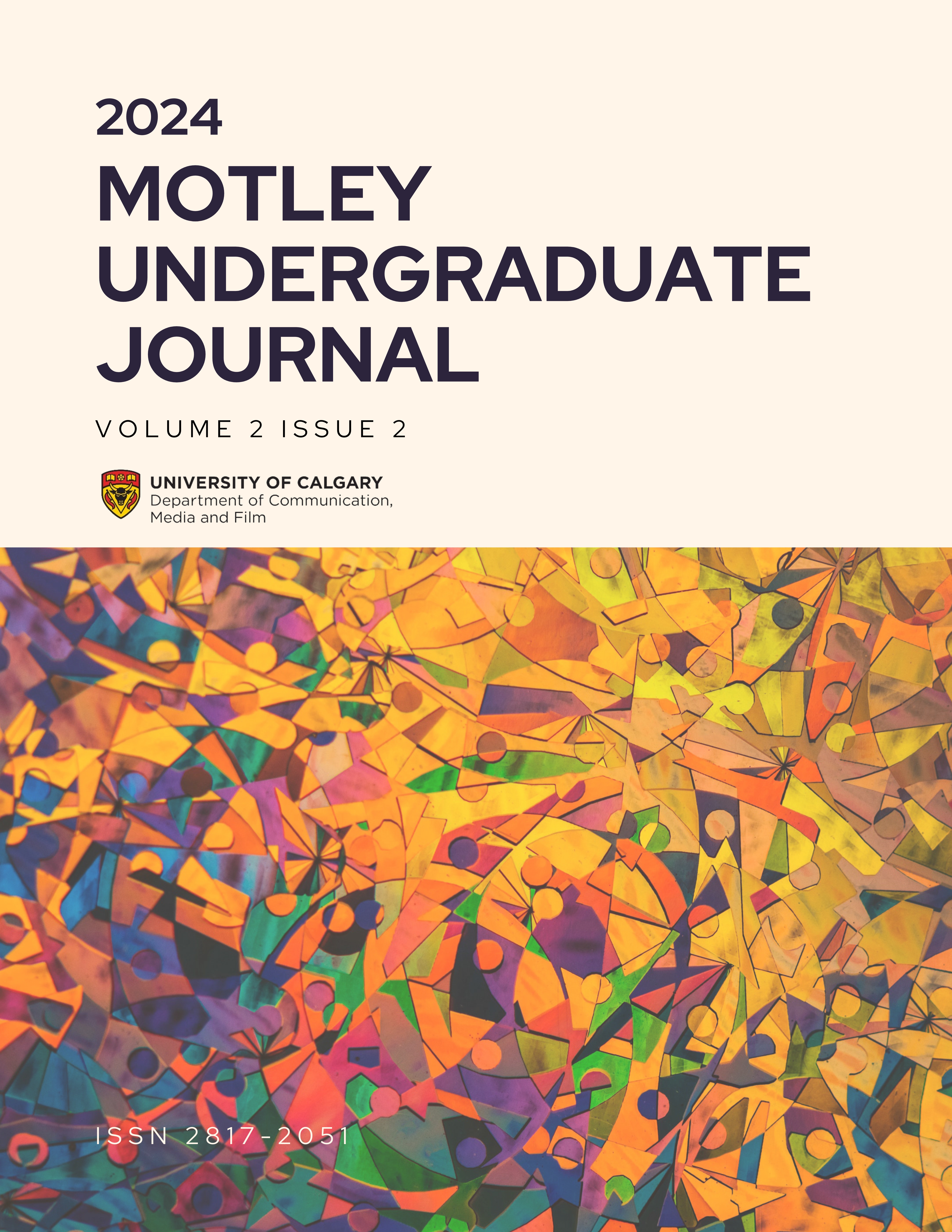Female Athlete Memoirs as Postfeminist Fairy Tales
DOI:
https://doi.org/10.55016/ojs/muj.v2i2.79495Keywords:
postfeminism, feminist standpoint theory, narrative analysis, athlete memoirs, heterosexismAbstract
Athlete memoirs are a popular sports genre. They are often marketed as tales of fidelity that candidly detail an athlete’s journey to success. This paper conducts a narrative analysis of athlete memoirs to uncover how white female athletes talk about themselves and their experiences. The memoirs under analysis are “Letters To A Young Gymnast” by Nadia Comaneci, “In the Water They Can’t See You Cry” by Amanda Beard, and “Brave Enough” by Jessie Diggins. Postfeminism and feminist standpoint theory serve as theoretical frameworks to support the interpretation of the data. Female athletes employ postfeminist tropes such as individuality, empowerment, and self-governance in the articulation of their athletic success. Moreover, they complete their narrative by disclosing details from their heterosexual romances. The research question this paper answers is: how do white female athletes use the genre of memoir to talk about themselves and their experiences? This paper identifies a prevalence of hypermasculinity and heterosexism in female athlete memoirs.
References
Beard, A., & Paley, R. (2012). In the water they can't see you cry: A memoir. Touchstone, published by Simon & Schuster.
Butler-Kisber, L. (2010). Qualitative inquiry: thematic, narrative and arts-informed perspectives. SAGE Publications Ltd.
Comăneci Nadia. (2003). Letters to a young gymnast. BasicBooks.
Couser, G. T. (2012). Memoir: An introduction. Oxford University Press. August 17, 2023, https://academic-oup com.ezproxy.lib.ucalgary.ca/book/12076?login=true&token=eyJhbGciOiJub25lIn0.eyJleHAiOjE2OTQ4ODA2MzUsImp0aSI6IjkxY2QyNjFiLTQ2NjktNDE5Zi1hOGJkLTBmZjUzNjFhODQ2NiJ9.
Diggins, J., & Smith, T. (2021). Brave Enough. Univ Of Minnesota Press.
Harvey, A. (2020). Gendered Media Work. Feminist Media Studies. (pp. 142-168). Polity Press.
Intemann, K. (2020). Feminist standpoint theory (p. Atkinson, S. Delamont, A. Cernat, J. W. Sakshaug, & R. A. Williams, Eds.). SAGE Publications Ltd.
Joseph, J., Tajrobehkar, B., Estrada, G., & Hamdonah, Z. (2022). Racialized Women in Sport in Canada: A Scoping Review. Journal of Physical Activity and Health, 19(12), 868–880.
Kane, M. J., LaVoi, N. M., & Fink, J. S. (2013). Exploring elite female athletes’ interpretations of Sport Media Images. Communication and Sport, 1(3), 269–298. https://doi.org/10.1177/2167479512473585
Kavoura, A., Kokkonen, M., Chroni, S. “Ani,” & Ryba, T. V. (2017). “some women are born fighters”: Discursive constructions of a fighter’s identity by female Finnish judo athletes. Sex Roles, 79(3–4), 239–252. https://doi.org/10.1007/s11199-017-0869-1
Kerley, J. (2014). Cripping the Memoir: Unraveling the Discourse Around Disabled Athletes’ Identities (thesis). ProQuest, Ann Arbor. Retrieved August 16, 2023, from https://www.proquest.com/docview/1545897559?parentSessionId=NZqqYkCge9O4JEIE
Zlqk0M4%2FhZoy5f72Ez9hWzESLxA%3D&pq-origsite=primo&accountid=9838.
McMahon, K. (2012, June 11). Gender Equality in Cross Country Skiing. xcottawa.ca.http://www.xcottawa.ca/articles.php?id=2449#:~:text=Since%20the%201954%20Oslo%20Olympic,men%20(Olympic.org)
McRobbie, A. (2004). Post-feminism and popular culture. Feminist Media Studies, 4(3), 255–264. https://doi.org/10.1080/1468077042000309937
Rolin, K. (2009). Standpoint Theory as a Methodology for the Study of Power Relations. Hypatia, 24(4), 218–226. https://doi.org/10.1111/j.1527-2001.2009.01070.x
Small, J. (2022, June 17). Equal distances approved for men, women in cross-country skiing. Rocky Mountain Outlook.
Tasker, Y., Negra, D., Spigel, L., & McRobbie, A. (2007). Feminist Politics and Postfeminist Culture in Interrogating Postfeminism. pp. 1-6. Duke University Press. https://doi.org/10.1215/9780822390411
Toffoletti, K., & Thorpe, H. (2018). Female athletes’ self-representation on social media: A feminist analysis of neoliberal marketing strategies in “Economies of visibility.” Feminism & Psychology, 28(1), 11–31. https://doi.org/10.1177/0959353517726705
Watson, L. B., Flores, M. J., Grotewiel, M., Brownfield, J. M., Aslan, S., & Farrell, M. (2018). How Do Feminist-Identified Women Cope With Discrimination? A Feminist Standpoint and Grounded Theory Study. Psychology of Women Quarterly, 42(3), 291–312.
https://doi.org/10.1177/0361684318777722
Willson, E., Kerr, G., Battaglia, A., & Stirling, A. (2022). Listening to Athletes’ Voices: National Team Athletes’ Perspectives on Advancing Safe Sport in Canada. Frontiers in Sports and Active Living, 4, 840221–840221. https://doi.org/10.3389/fspor.2022.840221
Zaslow, E. (2009). Girls, Power and Style: Social and Emotional Experiences of the Clothed Body. Girlhood Studies, 2(1), 112–129. https://doi.org/10.3167/ghs.2009.020108
Downloads
Published
How to Cite
Issue
Section
License
Copyright (c) 2024 Natasha Bodnarchuk

This work is licensed under a Creative Commons Attribution-ShareAlike 4.0 International License.
Copyright Policy
The Motley Undergraduate Journal is an Open Access article distributed under the terms of the Creative Commons Attribution 4.0 Share-Alike License. Under this license, users are free to share (copy, distribute and transmit) and remix (adapt) the contribution, including for commercial purposes, providing that the original work is properly cited. Under Creative Commons, authors retain copyright in their articles.
Author Self Archiving Policy
Authors are permitted to post their work online in institutional/disciplinary repositories or on their own websites. Pre-print versions posted online should include a citation and link to the final published version in The Motley Undergraduate Journal as soon as the issue is available; post-print versions (including the final publisher's PDF) should include a citation and link to the journal's website.

